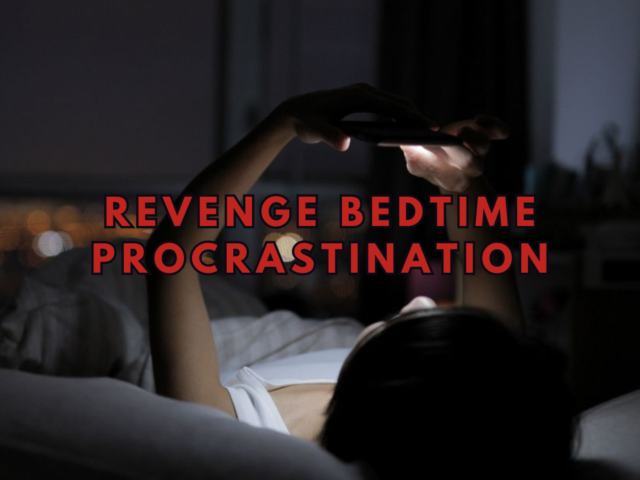
In a world that never sleeps, it is common for individuals to put their well-being on the back burner. Enter “Revenge Bedtime Procrastination,” a phenomenon that has taken the internet by storm. But is it real, or just another buzzword? Let’s find out the ins and outs of this type of behavior!
A Night Owl’s Dilemma
Revenge bedtime procrastination refers to the habit of staying up late at night, even when you know it is not good for your health and well-being. It is the act of “getting back” at the day by reclaiming your personal time and sacrificing your night’s sleep. Here are some of the reasons why people keep being awake at night.
1. Stress & Anxiety

Image via Nohat
First of all, in our hectic lives, stress and anxiety frequently accompany us. Sleeping can seem like an impossible task when the mind is filled with worry and overthinking. Some people use their bedtime to escape their anxiety. Late-night hobbies provide comfort from the stresses while serving as a distraction. But, this escape is frequently short because being unable to sleep later only makes stress and anxiety worse.
2. Digital Distractions

Image via House Beautiful
As we all know, the temptation to lose ourselves on the internet is legit in this digital era. The constant scroll of content and streaming on social media platforms may be extremely captivating. It is difficult to unplug because they provide an ongoing flow of information and entertainment. The pull of these digital distractions can be especially strong as bedtime approaches because of the fear of missing out as you choose to let go of your sleep.
3. Work-Life Balance

Image via The Good Men Project
Moreover, many people struggle to have a work-life balance in the modern world. This often gives little time for spending time on daytime interests or hobbies. As a result, the night turns into a tempting haven of loneliness. A possible reason for bedtime delay is an effort to make up for a feeling of leisure time during the day. Even though it interferes with sleep, it is a method to restore a feeling of freedom that may have been neglected in the past.
Consequences Of Revenge Bedtime Procrastination
This behavior may seem like a momentary act of rebellion against a busy day but it can have far-reaching consequences on your health and well-being. Take note of these effects together.
1. Changes In Mood & Energy

Image via The Asian Parent
One of the immediate effects of sacrificing sleep for late-night activities is the change in mood and energy. When people are not getting enough sleep, their patience tends to wear thin, and even minor inconveniences can trigger frustration. Lack of sleep also leads to daytime fatigue, drowsiness, and a lack of concentration. This can strain relationships, both personal and professional, as your reactions become less controlled.
2. Mental Health Problems

Image via Psychiatry Advisor
Furthermore, the effect of revenge bedtime procrastination extends beyond your changes in mood and energy level as it also can affect your mental health. Not getting enough sleep can elevate your stress hormone levels and develop depression. Over time, it will lead to persistent anxiety and heightened stress, making it difficult to manage the daily challenges life throws your way.
3. Weak Immune System

Image via Healthycell
After all, sleep is a cornerstone of a healthy body, and this behavior can significantly weaken your immune system. When people consistently compromise on sleep, their immune system becomes compromised as well. This makes them more vulnerable to infections, from the common cold to more severe illnesses where these conditions often have long-term consequences on your overall health and quality of life.
In conclusion, revenge bedtime procrastination isn’t just a minor habit. It can have major consequences on your mood, energy, mental health, and immune system. Understanding and recognizing the effect of this behavior is the first step in breaking the cycle and prioritizing the sleep that your body and mind desperately need to thrive.










